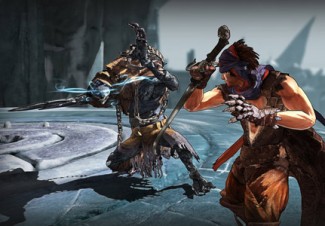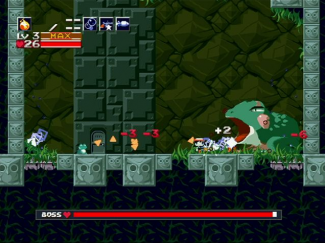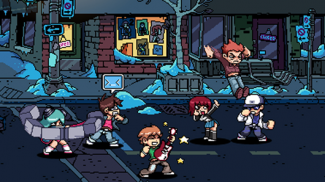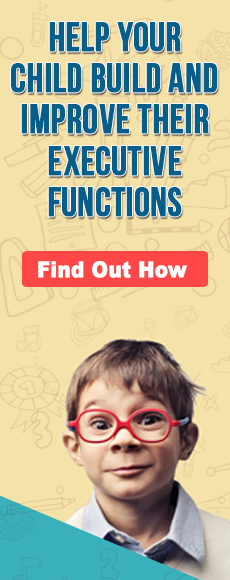 Genre: Action
Genre: Action
Recommended LWK Games: Sakura Samurai: Art of the Sword, Scott Pilgrim vs. The World: The Game, Super Paper Mario, Prince of Persia, LEGO Indiana Jones: The Original Adventures, Cave Story, Mutant Mudds, Batman: Arkham City, Luigi’s Mansion: Dark Moon
Popular M-Rated Games: God of War, Dante’s Infernpo, Enslaved: Journey to the West, No More Heroes, Lollipop Chainsaw
Common Thinking Skills Used: Focus, Flexibility
Genre Description
Games that fall into this category usually center around the adventures of a singular hero, much like RPG games, following the character on their quest until the end of the game. What makes them different from RPGs is their focus on action and gameplay over character customization and development. Here, players generally have a set amount of moves that they can use to interact with the game world and fight off enemies (think Mario’s signature head bop). Using this basic set of attacks and maneuvers, players tackle level after level, pushing the story forward through a series of harrowing and sometimes puzzling action sequences. Many games in this genre include “boss battles,” which pit the player against an exceptionally difficult or powerful foe, usually encountered at the end of a level. At the end of the game, players can usually expect to battle a final boss, who has likely been the antagonist of the hero throughout the entire story. For example, in most Mario games, players usually face-off against Bowser, Mario’s nemesis in the final battle.
Action Games are Good for Kids Who Need Help With:
Focus
Getting started and then maintaining attention and effort to tasks.
 Action games often require players to traverse long and difficult levels, requiring a significant investment of time and attention. It is imperative that players be able to maintain attention on the game over a sustained period of time if in order to make it all the way to the end. Additionally, most action games contain tricky sections that task players with focusing on multiple factors at once, dodging enemies, timing perilous jumps and learning new skill, all of which entails deep concentration. Players will likely meet setback after setback if they allow themselves to become distracted.
Action games often require players to traverse long and difficult levels, requiring a significant investment of time and attention. It is imperative that players be able to maintain attention on the game over a sustained period of time if in order to make it all the way to the end. Additionally, most action games contain tricky sections that task players with focusing on multiple factors at once, dodging enemies, timing perilous jumps and learning new skill, all of which entails deep concentration. Players will likely meet setback after setback if they allow themselves to become distracted.
Flexibility
Adapting and adjusting to changing conditions and expectations.
 Action games are so much fun because they send the player through lots of different levels and environments, often facing a wide variety of enemies and obstacles along the way. Whether it’s one of the early Super Mario games, or a modern 3D action game, the key to success will always be the players ability to adapt to constant changes being presented by the game.
Action games are so much fun because they send the player through lots of different levels and environments, often facing a wide variety of enemies and obstacles along the way. Whether it’s one of the early Super Mario games, or a modern 3D action game, the key to success will always be the players ability to adapt to constant changes being presented by the game.
Our Make it Work activities are designed to transform your child’s gameplay to real-world improvements in thinking and academic skills. If you’re just getting started with LearningWorks for Kids, we suggest you try them all to find which are the best for you and your child.
Introduce the Thinking Skills
Read over the pages for Focus and Flexibility. Then take some time to introduce these thinking skills to your child.
Explain that:
- Focus is the thinking skill that helps us maintain our attention and effort, start tasks and keep working on something without getting distracted.
- Flexibility is the thinking skill that helps us adapt to new situations, learn from mistakes and change what we are doing in order to deal with different challenges.
Focus Activity
 Helping with the responsibility of caring for a younger child can be very good training in task persistence. Point out the need to watch a child vigilantly to ensure the child’s safety. Many high school health classes require youngsters to have a “baby” which is usually a sack of flour or an egg that they need to care for on a sustained basis. They must take this sack of flour everywhere and be responsible for “feeding, bathing, and changing diapers.” This type of constant care is an opportunity to understand the “stick-to-itiveness” required in many areas of life. Talk about what can happen if you are not persistently vigilant in the care of another.
Helping with the responsibility of caring for a younger child can be very good training in task persistence. Point out the need to watch a child vigilantly to ensure the child’s safety. Many high school health classes require youngsters to have a “baby” which is usually a sack of flour or an egg that they need to care for on a sustained basis. They must take this sack of flour everywhere and be responsible for “feeding, bathing, and changing diapers.” This type of constant care is an opportunity to understand the “stick-to-itiveness” required in many areas of life. Talk about what can happen if you are not persistently vigilant in the care of another.
Flexibility Activity
Use “rehearsals” to help your child avoid getting thrown off anticipating new situations. Children who are inflexible are often anxious about trying something new, particularly in a larger social situation. A child going into a new school may benefit from going to the school during the summer and visiting the classroom or seeing where his locker will be. He would do well getting to a social event early so as to acclimate himself to the situation before other kids arrive. Talk to your child about how lots of people feel nervous in situations like going to a new school, meeting new people, or starting a new job.






